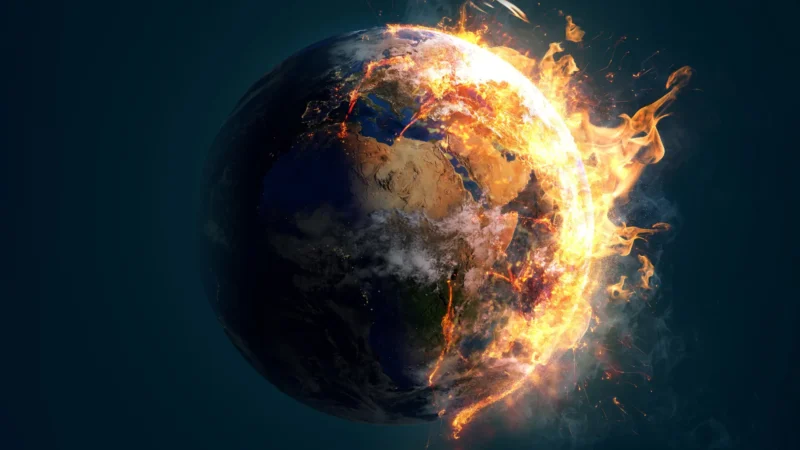Top Highlights
-
Tropical Forest Collapse: Research indicates that the extinction of tropical forests during the Permian-Triassic Mass Extinction was a major driver of the prolonged global warming that followed, limiting carbon sequestration.
-
Mass Extinction Analysis: The study utilized fossil records and geological clues to map plant productivity changes during the extinction event, confirming the loss of vegetation directly correlated with high CO2 levels.
-
Tipping Points in Climate: Findings underscore the existence of climate-carbon ‘tipping points,’ suggesting that similar collapses of tropical forests today could lead to irrevocable warming, even with zero human emissions.
- Importance of Collaboration: The research emphasizes the need for interdisciplinary approaches in paleontology to effectively decode past climate events and inform future strategies for environmental preservation.
The Lessons of Extinction
Recent research has unearthed critical insights about Earth’s greatest extinction event, the Permian-Triassic Mass Extinction, which occurred around 252 million years ago. Known as the “Great Dying,” this event caused massive biodiversity loss. Scientists previously attributed it mainly to volcanic activity. However, new data suggests that the collapse of tropical forests played a key role in prolonging global warming. The loss of vegetation reduced the planet’s ability to sequester carbon. Thus, these shifts created a cycle of increased atmospheric CO2 levels, sustaining super-greenhouse conditions for approximately five million years.
To uncover these findings, a team led by researchers from prominent universities conducted extensive field studies and innovative analyses of fossil records. They mapped historical changes in plant productivity during this extinction event. The results reinforce the notion that achieving critical thresholds in Earth’s climate-carbon system can amplify warming. Essentially, a drop in forest cover limited carbon absorption, influencing climate far beyond the immediate effects of volcanic eruptions.
The Implications for Today
These revelations carry urgent lessons for our modern climate crisis. Currently, Earth’s tropical forests face severe threats from deforestation and climate change. If they collapse similarly to the past, the consequences could be dire. Warming might persist even if global CO2 emissions reach zero. This scenario illustrates a potential tipping point in our climate system, warning us of unforeseen repercussions.
Moreover, the study emphasizes the importance of interdisciplinary collaboration in understanding and addressing climate challenges. Researchers highlight the responsibility to ensure their findings transcend academic boundaries. By integrating traditional methods with new technologies, they can better protect Earth’s future. Indeed, we share the responsibility of safeguarding our planet and ensuring that its story continues positively. The lessons from the past guide us, urging action before we encounter irreversible changes.
Discover More Technology Insights
Learn how the Internet of Things (IoT) is transforming everyday life.
Access comprehensive resources on technology by visiting Wikipedia.
TechV1

